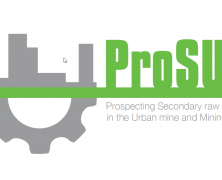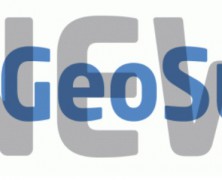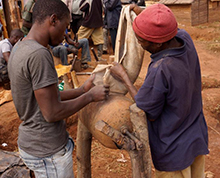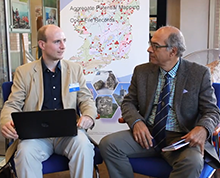Prospecting critical raw materials from wastes First Urban Mine Knowledge Data Platform providing access to data on mineral resources from extraction to end of life products with the ability to reference all spatial and non-spatial data The ProSUM project, funded by the European Union (€3.051m) and the Swiss Government (€0.63m), will deliver the First Urban Mine Knowledge Data Platform, a centralised database of all available data and information on arisings, stocks, flows and treatment of waste electrical and electronic equipment (WEEE), end-of-life vehicles (ELVs), batteries and mining wastes. The availability of primary and secondary raw materials data, easily accessible in one platform, will provide the foundation for improving Europe’s position on raw material supply, with the ability to accommodate more wastes and resources in future. ProSUM will provide data for improving the management of these wastes and enhancing the resource efficiency of collection, treatment and recycling. Every year in Europe, around 9 million tonnes of WEEE and 7-8M tonnes and ELVs are generated, and over 1 million tonnes batteries are sold. These products are a rich source of secondary critical raw materials (CRMs) in the urban mine. For example, 99% of world Gallium consumption is in integrated circuits and optoelctronic devices, 74% of Indium in flat panel displays and 27% of cobalt in rechargeable batteries. Previous and active mining deposits also contain untapped reserves of CRMs. Until now, the data on CRMs has been produced by a variety of institutions including government agencies, universities, NGOs and industry and lies scattered in different databases, formats and reports which is difficult to compare or aggregate. ProSUM, Latin for ‘I am useful’, and standing for Prospecting Secondary raw materials in the Urban mine and Mining waste, will create an Information Network that allows partners in the...
A big step forward in strengthening science for society in Africa
posted by EuroGeoSurveys
PanAfGeo has achieved unanimous consensus: from feasibility study to project? From the 8th to 10th February 2015, several fruitful workshops and bilateral meetings took place in Cape Town, South Africa, on the feasibility study, that has conceived PanAfGeo, an ambitious project, aiming at increasing knowledge and skills in African Geological Surveys. PanAfGeo is focused on establishing long-term strategic cooperation in several areas such as governance of natural resources, sustainable exploitation of non-energy mineral resources, prevention and mitigation of natural and man-made disasters and support to the development of the local mining sector. PanAfGeo comes as a result of increasing cooperation between EuroGeoSurveys (EGS) and the Organisation of African Geological Surveys (OAGS), with the support of several key stakeholders such as the EC, AUC, UNESCO, UNECA/AMDC, UNDP and the World Bank amongst others. The preliminary phase of PanAfGeo, a joint EGS-OAGS effort to produce a feasibility study, is now complete. During a series of workshops, the study underwent a full review from representatives of the African Union Commission, European Union – including DG GROW and DG DEVCO from the European Commission – UNESCO, Geological Society of Africa and several others, which expressed unanimous support for an implementation phase. Mr Roeland van de Geer, Ambassador of the European Union to South Africa, declared “There is a need to overcome the disparities in Africa that are based on differed wealth, in strengthening the national institutions such as National Geological Surveys and the Organisation of African Geological Surveys”. Africa is home to 30% of the world’s reserves of natural resources including several strategic and critical minerals. However its share of the global metal production is minor and has not developed largely compared to e.g. Asia or Latin America, whilst the world’s demand of minerals is still increasing. In...
The new era of minerals development in Africa
posted by EuroGeoSurveys
PRESS RELEASE The new era of minerals development in Africa To develop business opportunities in Africa while involving the local populations in the process Brussels, 9 February 2015 It is commonly acknowledged that African minerals resources are severely under-exploited, especially because still unexplored or classified. On the 8th and 9th February 2015 in Cape Town, South Africa, at the EuroGeoSurveys (EGS) and the Organisation of African Geological Surveys (OAGS) Workshop, the roadmap will be shared of PanAfGeo, an ambitious Project aiming at increasing knowledge and skills in African Geological Surveys. Improving the capacities of geological administrations and filling the gap in the collection, harmonization and sharing of geological map data on the African continent are the pillars to ensure business opportunities in Africa. These capacities become essential especially for mining exploration activities. The preliminary phase of PanAfGeo was the feasibility study “Geoscientific Knowledge and Skills in African Geological Surveys” carried out jointly by EGS-OAGS Members and key stakeholders such as EC, AUC, UNESCO, UNECA/AMDC, UNDP, World Bank, etc. PanAfGeo covers the entirety of the African continent and it develops a capacity building scheme, through the creation of a decentralized specialization school for African professionals. Trainings and adequate infrastructures will empower OAGS as coordination body ensuring that the know-how is transferred and shared among African Surveys. The geological cooperation is considered one of the most important and urgent needs to exploit minerals resources potential in Africa and its sustainable development. Commenting, Mr.Koen Verbruggen, EuroGeoSurveys President and Director of the Geological Survey of Ireland said “The launch of PanAfGeo initiative in Mining INDABA 2015 provides an opportunity to publicise and promote this important programme which will develop African geological datasets and knowledge. The local Geological Surveys play a strategic role in the economic growth and poverty...
Why is 2015 the International Year of Soils?
posted by EuroGeoSurveys
2015 is going to be the International Year of Soils, but only a few people know the reasons behind this United Nations resolution. In the Video “Why is 2015 the International Year of Soils?” Dr Barry Rawlins from the British Geological Survey explains several reasons why soils are important to us all and introduces 2015 the International Year of...
Minerals4EU Project Scientific Staff interviewed by EuroGeoSurveys
posted by EuroGeoSurveys
Minerals4EU Project Scientific Staff interviewed by EuroGeoSurveys at the M4EU progress meeting in Dublin in October 2014. David Ovadia, Project Exploitation Manager Nikolaos Arvanitidis talks about is role as Scientific Officer of the Minerals4eu project, how Minerals4EU will able to provide tools and expertise to mineral resources development in Europe, who will mainly benefits from the project and what will be the expected effects of the project for European...





